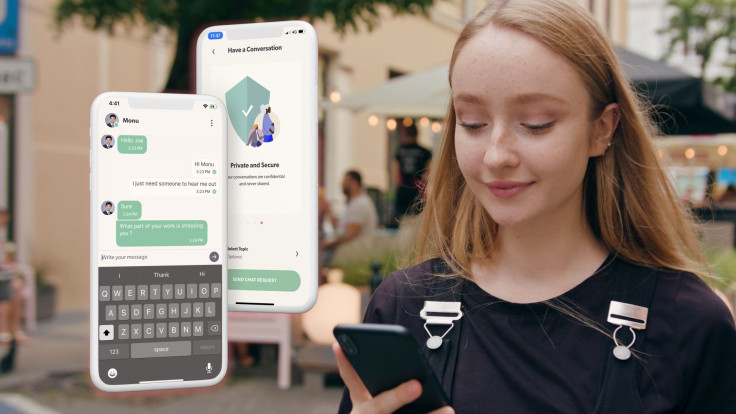
In the past, discussions about mental wellness have been put on the backseat, or worse, ignored. But today, as the world faces the coronavirus pandemic, which has dunked the globe into an extended period of isolation, mental wellness has been propelled to the forefront.
Due to the absence of social interaction, loneliness, fear and anxiety given the spreading pandemic, or inability to seek mental health help, mental wellness apps have stepped up to fill that void. Now that mental wellness has become a necessity more than ever, HearMe is one of the few apps that offer timely solutions.
“With physical distancing and the overall uncertainty of this moment, there is an extreme sense of isolation and anxiety. At the same time, millions are facing the uncertainty of unemployment and fear that their loved ones could get sick and die -- both of which correlate to a negative impact on mental health and well-being,” HearMe CEO Adam Lippin explains.
Due to the nature of their work, health workers are the most vulnerable to experiencing this dilemma. It has been found that they tend to suffer from psychological stress and burnout, now more than ever, as they tirelessly work to push back the pandemic. But, as Lippin states, even they have to “give themselves space to feel these feelings in a non-judgemental way and talk about them if they can.”
“Normalize these feelings. There shouldn’t be any guilt for feeling stressed, anxious, scared or burnt out,” he says.
And in this already anxiety-laden environment, socio-political stress is shaping out to be a major contributor to poor mental health, given our incessant need to be up to date with current affairs. But it is equally necessary to “check-in with your body” and “notice how you are feeling.”
“You may need to give yourself a break by turning off social media,” explains Lippin. “If you do feel the need to be up to date on current events, give yourself a time limit. Endlessly scrolling through Twitter or watching hours of cable news will never be useful. This is an especially complex situation because systemic racism and structural inequities often create an environment that contributes to poor mental health.”
But is the discussion of 'mental health' only valid if there is a 'mental illness' to be addressed?
Absolutely not as “mental health is an integral component of overall health”, shares Lippin. He further adds that mental health “is fundamental to our collective ability as humans to think, emote, interact with each other, and enjoy life.”
Just like our physical health demands that “we put work and energy into maintaining and improving our health -- we go to the gym, we eat healthy, we have regular check-ups” even when we are not ill, emotional wellness seeks the same treatment.
“Being able to express your feelings in a healthy and productive way all contribute to overall well-being,” Lippin adds.
Which brings us to the elephant in the room -- are mental health apps an apt substitute for a psychotherapist given the present scenario?
HearMe is a mental wellness app offering peer-to-peer emotional support for people across the world, allowing them to instantly chat with trained volunteers who will be the empathetic listeners they need.
But do such apps provide the help one needs, without compromising on any aspect? As Lippin puts it, platforms like his app, HearMe can offer “compassion, understanding and presence” as “sharing your feelings and being truly heard is universally beneficial.”
“HearMe’s listener model relies on peer support which has been found to improve self-esteem, decrease substance use and depression, and reduce hospitalization rates,” Lippin explains, before stressing that HearMe and other apps like it are “not designed to deal with serious mental illness.”
“I always recommend seeking professional help when needed, and in these cases, HearMe can supplement, rather than substitute, traditional therapy,” he adds.
© 2025 Latin Times. All rights reserved. Do not reproduce without permission.



